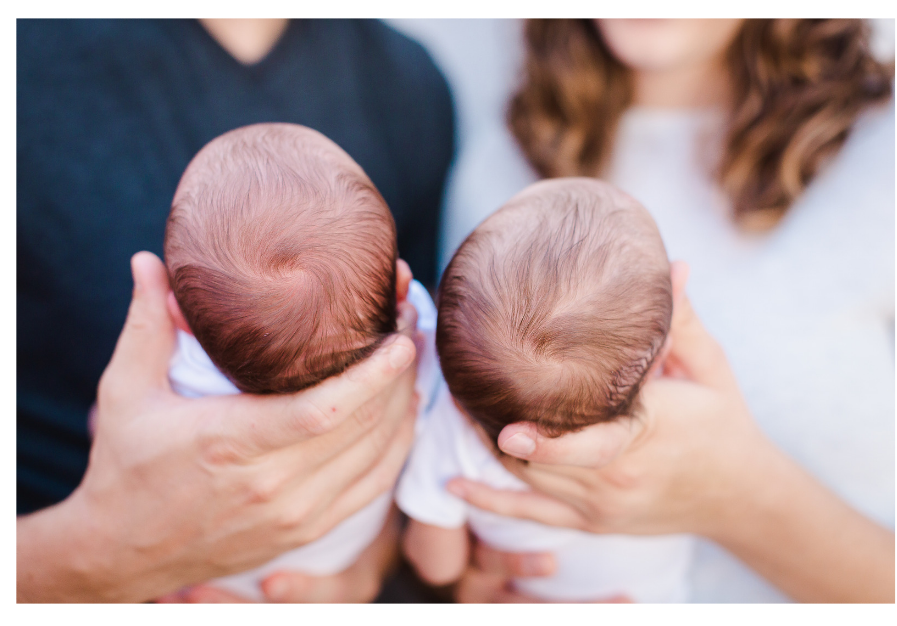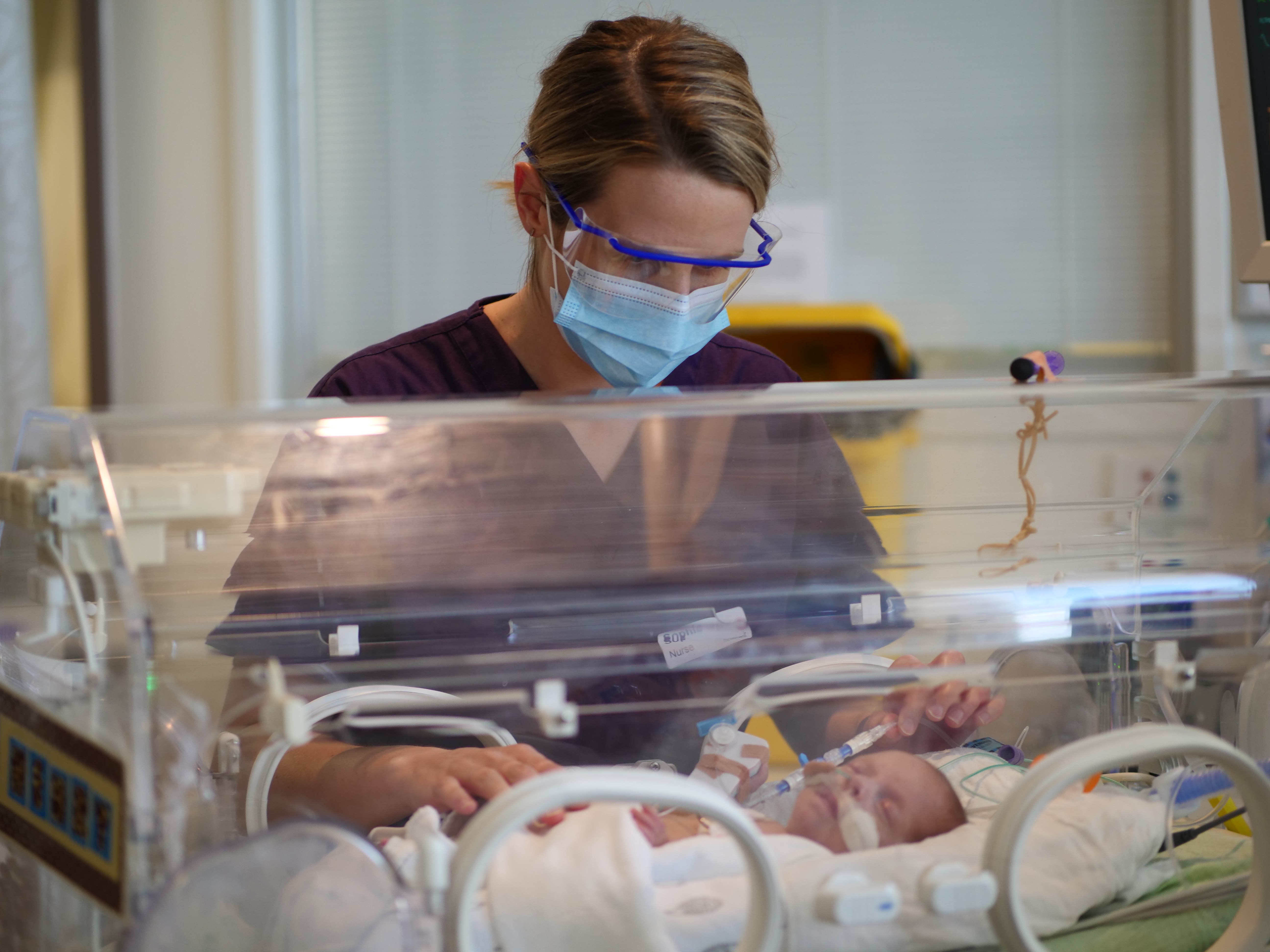
If you don't want to receive this information, please call (03) 8345 3272 or email patientexperience@thewomens.org.au
Well, here we are at week 25!
This week we’re including a reminder to look over our Childbirth Education options and book into classes if you are interested in them.
We are also covering things that you may not have even thought about. Things like multiple births (twins or more) or having a premature baby as well as some special services we offer our patients.
Part 1: Childbirth Education: Reminder to book a program
If this is your first baby, you have hopefully investigated Childbirth Education options and booked a program.
We covered this in depth in our first week so you can go back to check it if you’re interested. You can also check the information available on our Online childbirth education classes webpage which includes links to the booking website.
Please remember to choose a program that finishes approximately 4 to 6 weeks before your due date.
Alternatively, you may wish to seek a private educator.
For any specific inquiries email: childbirth.ed@thewomens.org.au or leave a message at (03) 8345 2143.
Please note that this office operates on a part-time basis during office hours. We will endeavour to answer your enquiry as soon as possible.

Don’t forget we also have the following resources available on our website:
- Ten free online videos
- Birth and Babies for first time parents (This booklet is about childbirth and early parenting for those birthing at the Women's. It is designed to support the information covered in our online childbirth education program).
- Virtual hospital tours for maternity patients
- The Women’s fact sheets on a range of health topics
Part 2: Experiencing a multiple pregnancy – twins or more

Of all babies born in Australia in the last few years, approximately three per cent of these were from a multiple set (twins or more). The majority are born healthy but there are increased risks with being pregnant with twins or multiples.
Being pregnant with more than one baby, you are more likely to experience nausea, heartburn, vomiting and backache.
As your pregnancy progresses, there is a higher risk of developing gestational diabetes and anaemia - all of which can be managed with regular Clinic visits and care during your pregnancy. Preterm labour (before 37 weeks) is also more common with a multiple pregnancy.
Being fit and healthy during your pregnancy, and managing your weight gain, can help your body to cope better with the multiple pregnancy. Your health care professionals will also see you more frequently, with potentially more visits, scans, and tests.
Planning for the birth of your babies will be discussed as either a vaginal birth or an elective (planned) caesarean section. Attending one of our Childbirth Education programs will be useful, especially the one designed for twins and more.
You can successfully breastfeed if you are having more than one baby. Support is offered by our midwives and lactation consultants in the Breastfeeding Centre, located on Level 4 at the Women’s in Parkville.

Having more than one baby can be joyful, but also hard work and it can be very tiring.
You will need the support of others. Look at support that may be available from friends and family, your local council or community health centre and through the organisations listed below:
- Australian Multiple Birth Association
- Twins Research Australia
- Australian Breastfeeding Association
- (Search for Breastfeeding twins and Breastfeeding triplets, quads or more!)
- Multiple Birth Volunteer Support
Also contact Services Australia (previously called Centrelink) to see if there is any additional financial support available
Part 3: Prematurity – babies born before 36 weeks’ gestation

If your baby is born early, depending upon how well they are at birth and how early they are born, they could either be cared for with you at your bedside, moved to a special care nursery (SCN) or our Newborn Intensive Care Unit (NICU). The Women’s has both a SCN and NICU for newborns.
This can be a stressful time for parents. The hospital environment may be overwhelming, and it can be hard not to be anxious. Therefore, it is important that you rest, eat well, and communicate with your partner and the health care team.
Having an unwell or preterm baby can affect your confidence with parenting your baby. There will be many ways that you can be involved with your baby’s care, such as talking, reading, and singing to them, nappy changing, skin-to-skin care and holding them, when possible.
Breastfeeding may or may not be possible in the beginning. Our midwives will help you with expressing milk and feeding your baby.
As your baby grows and you gain knowledge and skills, your confidence will also grow.
Apart from our staff, there are other organisations that also offer support. These include:
- Life’s Little Treasures Foundation
- Pregnancy baby & birth
- Victorian Infant Collaborative study – a long term study of infants born preterm

Babies who are born very early, or who are unwell, are very sensitive to their environment and to how they are handled. They need to preserve their energy for getting better and growing.
Your baby will be used to the environment inside your uterus where they were constantly warm, snug, and securely ‘wrapped’ by its walls. Although babies can stretch and kick in the uterus, they have gentle boundaries all around them that help them to return to a curled-up foetal position. They are used to gentle movement, but not sudden movements.
Their hearing is already developed, and they are used to the sound of your voice. In fact, your voice will be one of the most comforting sounds they will hear outside the uterus.
Their sight is one of the last sensory systems to develop, so bright light can be too much.
Your baby will appreciate:
- hearing you talk and sing to them
- being securely wrapped and positioned so that they feel secure (a nurse can help with this)
- skin-on-skin cuddles when it’s possible
- being moved gently and in a way that they feel supported
- having their upper body wrapped during nappy changes.
Here are a few tips for while baby is in hospital:
- take lots of photos
- keep a diary and record milestones
- collect cards and other mementos
- if you can’t be there – telephone staff, leave a camera for staff to take photos
- get other siblings, family, or friends to make cards.
For more information on premature babies see:
- Early infant development fact sheets – this information was developed by our NICU- allied health team. Several the fact sheets are available in other languages.
- Raising Children – for a range of information on premature and sick babies.
Part 4: Support services for our maternity patients
Your experience of pregnancy, labour and birth will depend on many factors and your stage in life. At the Women’s we aim to provide relevant information and support beyond medical care to anyone birthing with us.
Visit our Support Services page for a quick look at some of the supports available to you.
Some of our services include:

If you have a physical or intellectual disability and would like some additional support throughout your pregnancy, the WIN program can assist.
Our specialist team can provide an individualised care plan, childbirth education, pregnancy care and, if needed, home support for up to six weeks after your baby is born. You can also be linked to services in your local community.
More information can be found here - Women with Individual Needs Clinic or call (03) 8345 2000 and ask to speak with our WIN Clinic Coordinator.

If you or your partner identify as Aboriginal or Torres Strait Islander, we can offer you and your family culturally sensitive services and support through our Baggarrook and Badjurr-Bulok Wilam teams.
Our Baggarrook team can provide your maternity care. One midwife (supported by back up Baggarrook midwives) takes care of you during your pregnancy, labour, birth, hospital stay after the birth, and home visit. Our Baggarrook midwives are ‘on call’ and you can contact them with any questions or concerns.
Our Baggarrook midwives work closely with our Aboriginal Health team from Badjurr-Bulok Wilam, to provide the care and support you need.
Badjurr-Bulok Wilam means ‘Home of many women’ in the Woiwurrung language of the Wurundjeri Peoples. This centre provides culturally appropriate support and advocacy services to address your social, emotional, and cultural needs.
Located on the Ground Floor of the hospital, Badjurr-Bulok Wilam provides a resting place for you and your family. It’s a place to sit and yarn with our Aboriginal and Torres Strait Islander Hospital Liaison Officers.
More information can be found here about Baggarrook midwifery care and Badjurr-Bulok Wilam

Our WADS team can provide care and support throughout your pregnancy if you are dependant on alcohol and drugs.
They can provide medical care, assessment, counselling, and support. They work to improve the health and well-being of you and your baby.
More information can be found here - Women’s Alcohol & Drug Service (WADS)

If you come from a country where female circumcision is practised, you may wish to contact our FARREP team. They can work with you to make it easier to get appropriate health information and care.
FARREP workers are experienced and specially trained female health workers and speak several languages.
The service is located on the ground floor near our Reception Desk
More information can be found here: Family & Reproductive Rights Education Program

The Cornelia Program may be able to assist if you are experiencing homelessness or insecure housing such as couch surfing or staying in an unsafe boarding house. It can help provide a supportive pathway to safe accommodation, social services and other health and psychosocial programs. The program provides guidance and support to access long-term and stable housing.
More information can be found here: The Cornelia Program

If you speak little or no English or need an AUSLAN interpreter, our Language Services department can book an interpreter for you. We are committed to helping you communicate with our staff, so you can make your own decisions about your healthcare.
We can provide assistance in over 80 languages. Our qualified interpreters are available for face-to-face interpreting from 9am to 4.30pm Monday-Friday. For all other times phone interpreting is available.
We aim to provide AUSLAN interpreters for face-to-face interpreting, but it is dependent on availability. AUSLAN interpreters are booked by Language Services during business hours and after hours by the clinician on duty.
More information can be found here: Language Services
Many of our fact sheets are also available in languages other than English. To see what fact sheets are available in your preferred language, use the Find a fact sheet by language option at the bottom of our web pages.
We hope you have found this information helpful.
If you have any health concerns please talk to one of your health care professionals – midwife, General Practitioner (GP), hospital doctor, etc.
There will be more to read and learn next week, in Week 26. Stay safe and well.